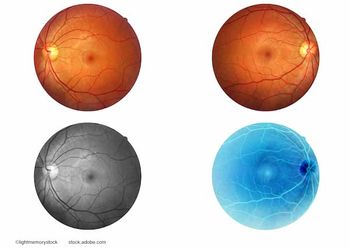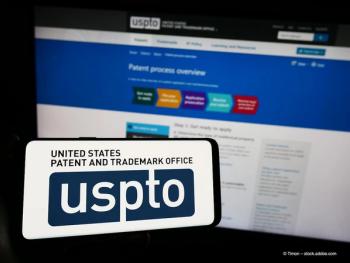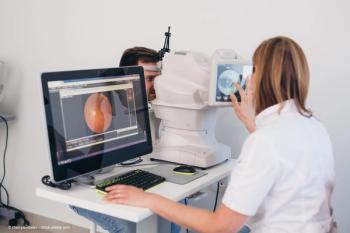
AAVantgarde, Ocular Therapeutix, Oculis announce EURETINA presentations
Leading companies to unveil new research on retinal diseases at EURETINA 2025, showcasing innovative therapies and clinical trial results.
AAVantgarde Bio, Ocular Therapeutix, and Oculis are amongst the latest companies to announce their presentations during the upcoming 25th annual European Society of Retina Specialists (EURETINA) Annual Congress September 4-7, 2025, in Paris.
AAVantgarde Bio to present new LUCE-1 study data
Lead investigator Prof. Francesca Simonelli will present the data. Simonelli is head of the ophthalmology unit at the University Hospital of Campania “Luigi Vanvitelli.”
The presented data will highlight the safety and efficacy of AAV8.MYO7A (AAVB-081), AAVantgarde’s dual hybrid AAV-based gene therapy for patients with retinitis pigmentosa secondary to Usher 1B, caused by mutations in the MYO7A gene.1
The LUCE-1 trial (NCT06591793) is a phase ½ multicenter, open-label, dose escalation study investigating 3 dose levels of AAVB-081.1 The treatment is administered subretinally in patients with retinitis pigmentosa associated with Usher Syndrome Type 1B.
AAVantgarde presentation at EURETINA 2025
LUCE: A first-in-human Phase ½ multicenter, dose-escalation, safety and efficacy study of subretinal administration of dual-hybrid AAVB-081 gene therapy in subjects with Usher Syndrome type 1B Retinitis Pigmentosa
- Session title: Free Paper 2 – Inherited Retinal Diseases
- Presentation Number: O13
- Session Date: September 4
- Session Time: 12:00 to 13:00 CEST
Ocular Therapeutix at EURETINA 20252
Symposium title: Advancing Retinal Disease Treatment: Exploring OTX-TKI’s Potential to Extend Treatment Durability
- Session: Satellite Symposium
- Session Date: Saturday, September 6
- Session Time: 10:15 to 11:15 a.m. CEST
ePoster Title: Macular Fluid Volumetric Outcomes Following a Single Axitnib Intravitreal Hydrogel (OTX-TKI) from the HELIOS Clinical Trial for Diabetic Retinopathy
- Session date and time: ePoster available for viewing throughout the duration of the Congress
- Presenter: Margaret A. Chang, MD, MS
Oculis to present DME and acute optic neuritis trial results
Oculis announced the company will present clinical trial results from stage 1 of the phase 3 DIAMOND (DIAbetic Macular edema patients ON a Drop) program. The phase 3 of the program was initiated after positive findings from stage 1 of the DIAMOND program, which was announced in the first quarter of 2023.3
The DIAMOND program is made up of the DIAMOND-1 and DIAMOND-2 trials. These trials are double-masked, randomized, multi-center trials evaluating the safety and efficacy of OCS-01 eye drops in patients with diabetic macular edema (DME). More than 800 patients are enrolled across both pivotal trials and were randomized 1:1 to receive OCS-01 or vehicle six times daily for the 6-week induction phase and then three times daily through week 52 for the maintenance phase.3
The primary endpoint of the DIAMOND program is change in best-corrected visual acuity early treatment diabetic retinopathy study (BCVA ETDRS) letter score at week 52. The secondary endpoints include percentage of patients with ≥15-letter gain in BCVA and change in central subfield thickness (CST), both at Week 52.3
OCS-01 is an OPTIREACH formation of high-concentration dexamethasone eye drops in development as a noninvasive option for the treatment of DME. It is an investigational drug in phase 3 that has not received regulatory approval for commercial use in any country.3
In addition to the DIAMOND program data, Oculis will share data from the phase 2 ACUITY trial evaluating OCS-05 (Privosegtor).3 OCS-05 is “a novel peptoid small molecule candidate with the potential to become a first-in-class neuroprotective therapy for acute optic neuritis and other neuro-ophthalmic diseases,” said a press release.3
Recent ACUITY phase 2 trial data reflect positive topline results, showing the benefits of OCS-05 in anatomical preservation of the retina and visual function improvements in patients living with acute optic neuritis.3 OCS-05 has received orphan drug designation from both the FDA and EMA for acute optic neuritis. It is an investigational drug in phase 2 and has not received regulatory approval for commercial use in any country.3
Oculis at EURETINA 2025
Ophthalmology Futures Retina Forum
Is Diabetic Retinopathy the Overlooked Elephant in the Room – Panel Discussion
- Presenter: Riad Sherif, MD, Chief Executive Officer
- Date: September 3
- Time: 10:00 to 10:30 CEST
Corporate Presentation
- Presenter: Riad Sherif, MD, Chief Executive Officer
- Date: September 3
- Time: 14:00 CEST
EURETINA Innovation Spotlight
Corporate Presentation
- Presenter: Sharon Klier, MD, Chief Development Officer
- Date: Wednesday, September 3
- Time: 16:20 CEST
EURETINA
Efficacy and Safety Outcomes over 12 weeks with OCS-01 Eye Drops in DME From DIAMOND Phase 2/3 trial: Focus on Subgroup by Lens Status
- Presenter: Patricio Schlottmann, MD
- Session: Free Paper 1 – Diabetes & Vascular Diseases
- Date: Thursday, September 4
- Time: 10:57 to 11:03 CEST
Efficacy and Safety Outcomes over 12 weeks with OCS-01 Eye Drops in DME From DIAMOND-Stage 1 trial: Focus on Subgroup by Prior Treatment Status
- Presenter: Veeral Sheth, MD, MBA, FACS, FASRS
- Session: Free Paper 1 – Diabetes & Vascular Diseases
- Date: Thursday, September 4
- Time: 11:03 to 11:09 CEST
Improved Low Contrast Visual Acuity and Reduction in Retinal Ganglion Cell Loss with Privosegtor in Acute Optic Neuritis: Results from a Multicenter Randomized Placebo-Controlled Double-Masked Trial
- Presenter: Sophie Bonnin, MD
- Session: Euretina Session 7 – First Time Clinical Trials & Late Breaking Session
- Date: Friday, September 5
- Time: 15:57 to 16:03 CEST
Reference
AAVantgarde to Present Updated Clinical Data from LUCE-1 Study at EURetina 2025. AAVantgarde. Published August 28, 2025. Accessed September 2, 2025.
https://www.aavantgarde.com/en/news/aavantgarde-to-present-updated-clinical-data-from-luce-1-study-at-euretina-2025/ Ocular TherapeutixTM to Participate in September Investor and Scientific Conferences | Ocular Therapeutix, Inc.. Ocular Therapeutix, Inc. Published 2025. Accessed September 2, 2025. https://investors.ocutx.com/news-releases/news-release-details/ocular-therapeutixtm-participate-september-investor-and
Times TM. Oculis to Present Clinical Trial Results in Diabetic Macular Edema and Acute Optic Neuritis at Ophthalmology Conferences. The Manila Times. Published September 2025. Accessed September 2, 2025.
https://www.manilatimes.net/2025/09/01/tmt-newswire/globenewswire/oculis-to-present-clinical-trial-results-in-diabetic-macular-edema-and-acute-optic-neuritis-at-ophthalmology-conferences/2176751
Newsletter
Keep your retina practice on the forefront—subscribe for expert analysis and emerging trends in retinal disease management.














































